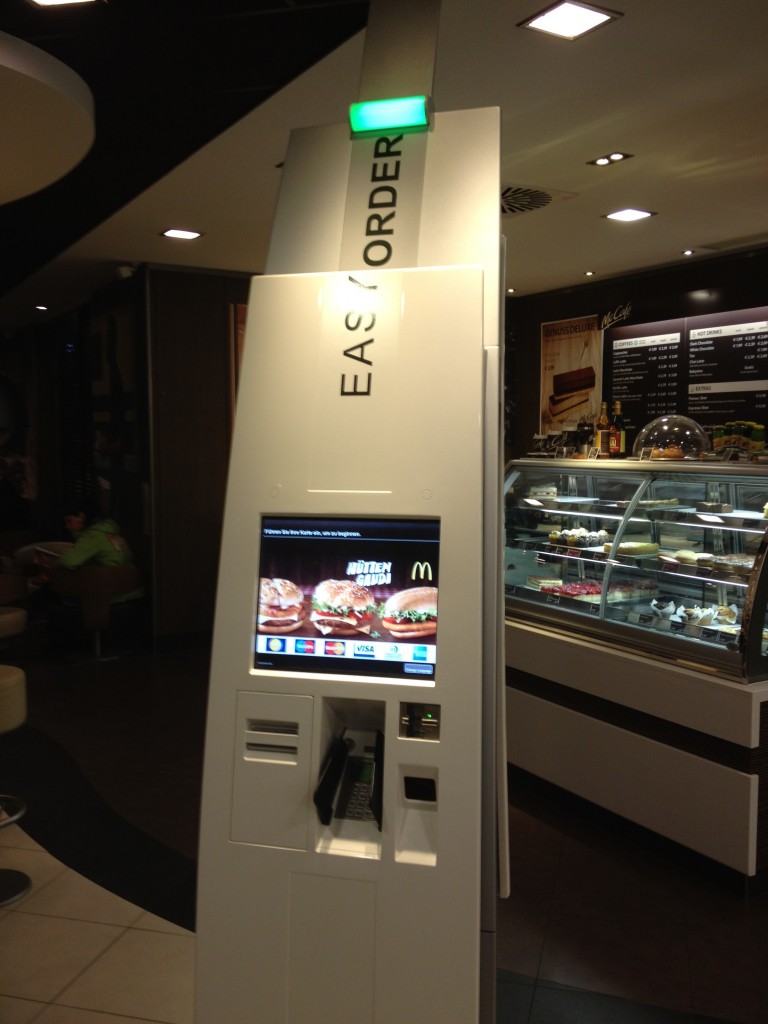All over tech blogs one can read that smartphones and connected devices represent another wave of the digital revolution. There are 5.6bn mobile phone subscribers and at the end of 2011 already 835m of them were equipped with smartphones. Smartphone sales in Western Europe and the US are meanwhile outpacing feature phone sales. But it’s not only about device coverage – we also became heavy users of our smartphones these days. Total app downloads have surpassed the 30bn mark lately in 2011. 8 out of 10 would select their smartphone out of 3 things they can take on a lonely island. We tend to think that all of this is a huge step forward for mobile technology and innovation will slow down over the next years. I think it will be the opposite. To me, so far we have only achieved the technical foundation (soft- and hardware for mobile devices, wireless data transfer,…) to get the real revolution going. The main reason why this has not yet taken fully off is because the “non-mobile” environment is adapting very slowly to the new reality.
Let me give you some more data to underline my argumentation. Today’s most widespread activities on smartphones is communication, according to Google. We make calls and send sms (> 90% of users), we check e-mail (82%) or use social networking sites (63%). Other top categories include playing games, checking news or weather. Some of us (roughly 1/3) also listen to music and watch video on mobile. Six years ago I used to have a Windows Phone, one of the first connected phones, that let me do all of that stuff too. It was just not that fast and the quality was much worse than my iPhone today – but still it were the same activities. Nothing groundbreaking new since then. Still we think that in the last few years so much has changed in mobile.
So what would be the real innovation that I am looking for in mobile? Actually it’s quite simple things and all technical requirements are already available. Here are some examples:
- I want to use my phone to store all my ID cards on it. No more driving licence and no more passports. One phone to rule them all.
- I want to order pizza in a “smartphone way”, so not by dialing a number, just by selecting from a menu and it gets delivered and I see when it arrives and everything is paid via Paypal or iTunes.
- I want to shop my everyday consumption in my favorite shops from my mobile and pick all the stuff up on my way home from office.
The list would be endless. Still, I am not demanding to have NFC or a perfectly integrated mobile payment solution (I want to do online payments on my mobile), so not any functionality that is not yet technologically mature. All ingredients would be available today, it’s just nobody goes after the opportunity, because the “non-mobile” environment (government, pizza service, retailers,…) is slow in adapting to the new reality.
My motive for this post was a recent visit to McDonald’s in Graz, which has just recently been refurbished. It appears that they have new self-service cashiers. You can select your meal and pay with bank or credit card at the self-service cashier, then you’ll get your meal handed out to you. See the picture below.
These stations are called easy order. Now imagine how easy ordering would be if you can do it on your smartphone. Open the McDonald’s App and select the menu during your drive to the restaurant, payment is done online. Once you’re there, you pick up your meal and go have a seat.
For McDonald’s such an app won’t change a lot compared to the current “easy order” flow. But I think more people would be using the app option (more speed for McDonalds and better process flow), more data is collected for marketing purposes, space in the restaurant can be used for seatings (they had 4 easy order stations there!!), customers would be happier and a lot of money would be saved (compare the cost of an app to the cost of 4 stations per restaurant).
I am sure in a few years things will work out the way I’d like to see them now. Then also the “non-mobile” environment has realized that mobile can do much more than they always thought. I hope mobile is not about playing games when I’m waiting for the bus, mobile should facilitate people’s life’s.

